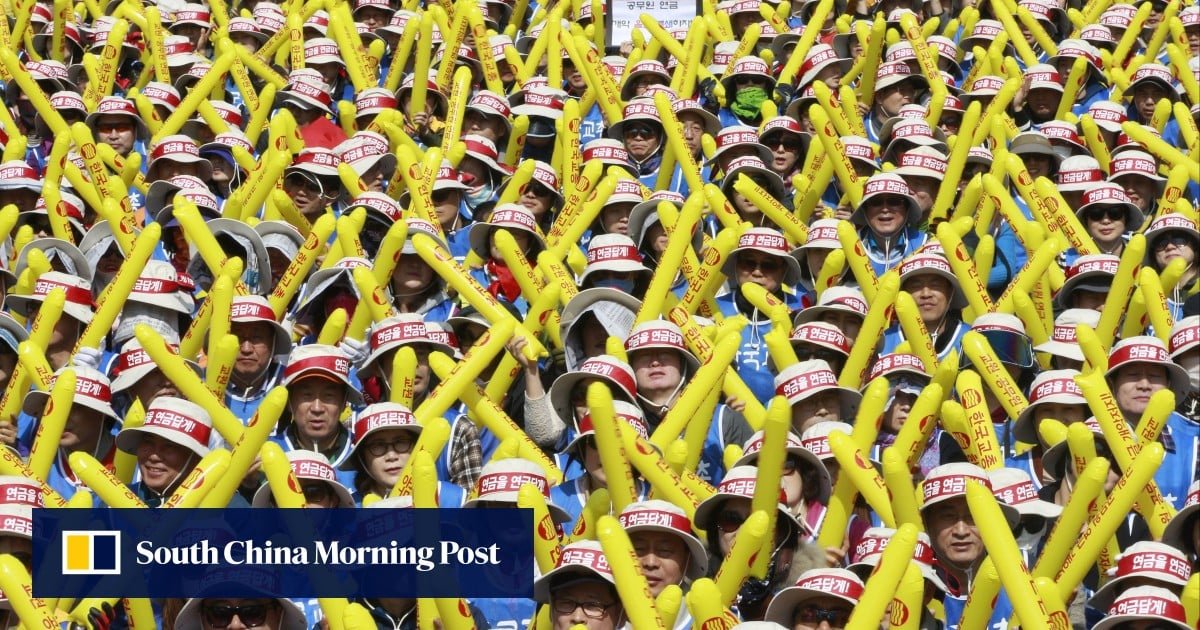South Korea’s financial watchdog said it found a range of instances where some of the country’s largest brokers misrepresented risky China-linked structured products to retail investors, many of whom are retirees.
An investigation into five banks and six brokerages uncovered poor regulatory compliance and systematic failures regarding the sale of complex financial products linked to the Hang Seng China Enterprises Index, the Financial Supervisory Service said on Monday. Losses from the popular notes are seen totalling 5.8 trillion won (US$4.4 billion) this year, if the index remains at the current level, it said.
Regulators will take further steps such as imposing fines, taking into account how much compensation the financial firms provide to customers and efforts made in regaining their confidence, it said.
The announcement follows a months-long investigation by the FSS into some of the nation’s most prominent retail lenders, including Kookmin Bank and Shinhan Bank and brokerages such as Korea Investment & Securities and Mirae Asset Securities to see if they had violated any rules or misrepresented the high-risk equity-linked securities.
South Korea is among the world’s largest markets for the structured products, which have been readily available at retail channels such as local banks and especially popular among the nation’s retirees. In 2021, the China-linked ELS notes were sold with a three-year maturity, with about 22 per cent of the accounts now held by people ages 65 or older. The HSCEI traded well above 12,000 then, but has since slumped, losing more than half its value from a 2021 peak on concerns about the growth outlook of Asia’s largest economy amid growing US-China tensions. The index finished at 5,656.72 on Friday.
Of the outstanding balance worth 18.8 trillion won in HSCEI-linked notes as of December, about 1.2 trillion won was lost during the first two months of this year, clocking an accumulated capital loss rate of 54 per cent, the FSS said.
Systematic breakdowns led to sales systems that prioritised firms’ profit-making at the expense of consumers’ interests, the regulator said.
One bank relaxed internal risk management rules that would have mandated slower sales as volatility grew and hiked sales targets instead. One brokerage recommended the high-risk products to investors who said they wanted their principal protected. Another bank misrepresented the equity-linked products as having recorded no capital losses in the past 10 years, neglecting to disclose losses going back 20 years, the FSS said.
That was despite existing consumer protection rules, shored up in 2021 following a series of scandals tied to complicated and risky financial products that preyed on retail investors. Those consumer protection tools did not operate well in this case, the FSS said.
Earlier this year, lenders halted sales of equity-linked securities on concerns about capital losses and regulatory crackdowns.
Banks are expected to draw up compensation for investors hurt by the products and reflect those losses in their first quarter financial results, Choi Chunguk, an analyst at Hana Securities, said in a note Saturday. If the size of the compensation exceeds 1 trillion won, those bank stocks are expected to see a short-term shock, Choi said.
The other firms under investigation are Hana Bank, NongHyup Bank, Standard Chartered Bank Korea, Samsung Securities, KB Securities, NH Investment & Securities and Shinhan Securities.
Regulators drew up a guideline on how much investors should be compensated for their losses. The FSS said it will oversee a conflict resolution process starting April and will seek to revise the system allowing sales of complicated products to retail investors.




